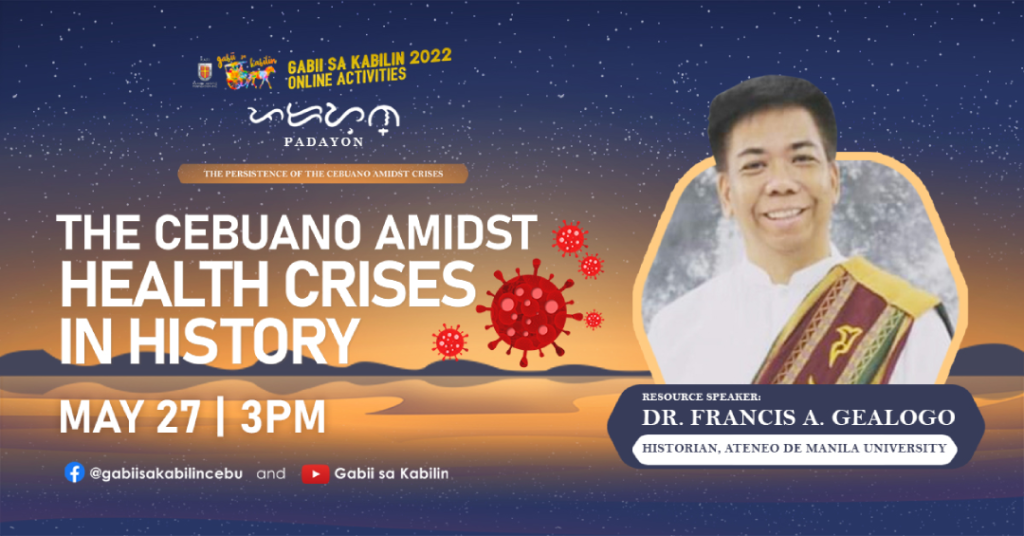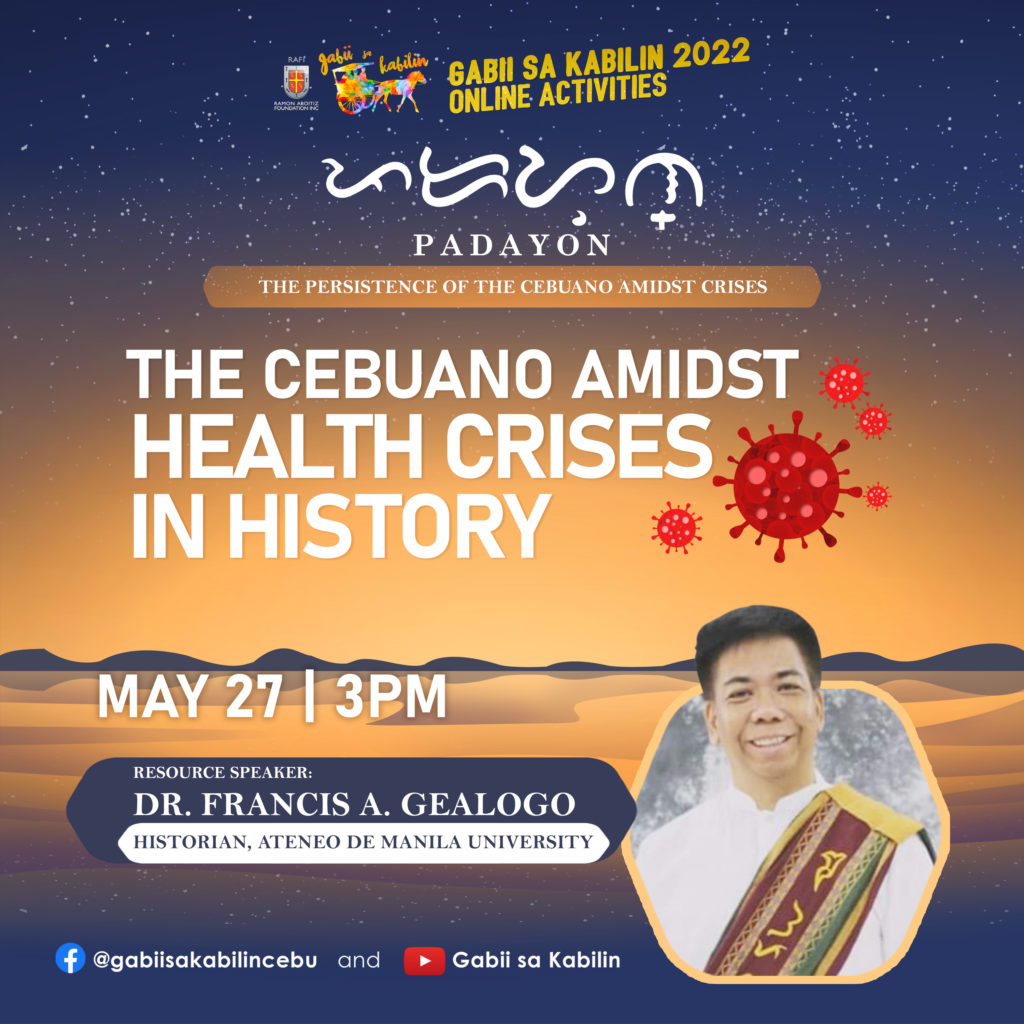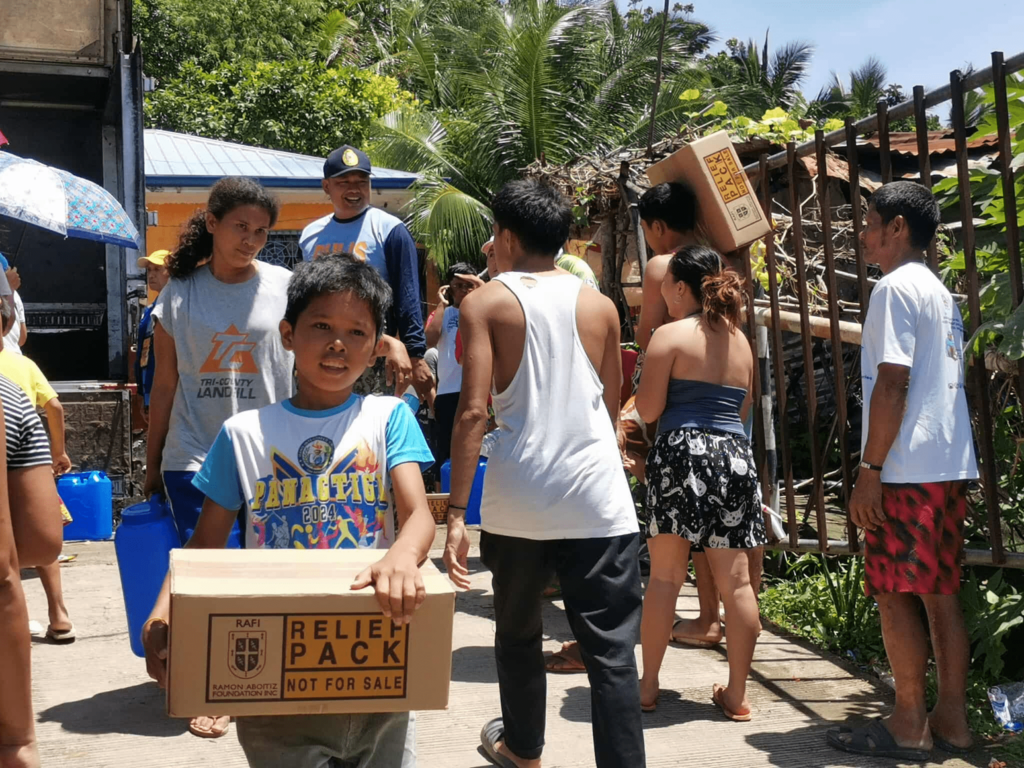
The COVID-19 pandemic is one of the biggest global health crises that has emerged in over a century, but disease outbreaks are nothing new in the eyes of history– humanity has battled many different health emergencies before.
On May 27, 3PM, Gabii sa Kabilin will hold a webinar, entitled, “The Cebuano Amidst Health Crises in History”, with historian, Dr. Francis A. Gealogo, to discuss the important health crises, such as epidemics and the latest pandemic, that Cebu experienced and their effects on the Cebuano community.
Dr. Francis A. Gealogo is a professor and former chairman of the Department of History of the Ateneo de Manila University. He is also a former Commissioner of the National Historical Commission of the Philippines.
He currently holds the Horacio de la Costa Professorial Chair in History at the Ateneo de Manila. His article, “The Philippines in the World of the Influenza Pandemic of 1918-19”, was awarded as one of the Most Outstanding Scientific Papers of the National Academy of Science and Technology.
The webinar is free of charge and will be streamed on Gabii sa Kabilin’s Facebook page and YouTube channel. Those who wish to participate may register below. An e-certificate will be given to those who will answer the evaluation form after the online event.
The webinar is part of GSK’s activities this year which centers on the theme, “Padayon: The Persistence of the Cebuano Amidst Crises”. The theme highlights why the Cebuano race, spirit and personality have continued to exist and thrive amidst the many challenges that came his way.
The face-to-face Gabii sa Kabilin will also be returning on October 21, 2022 from 6 P.M. to 12 midnight. More details about the heritage night will be announced in the coming weeks, including the participating museums and heritage sites, and how to buy tickets.
Initiated in 2007 by RAFI, Gabii sa Kabilin aims to help preserve local culture and heritage by encouraging Cebuanos to visit museums. It launched its online activities last year at the onset of the pandemic to help make Cebuano culture and heritage more accessible to the public.



